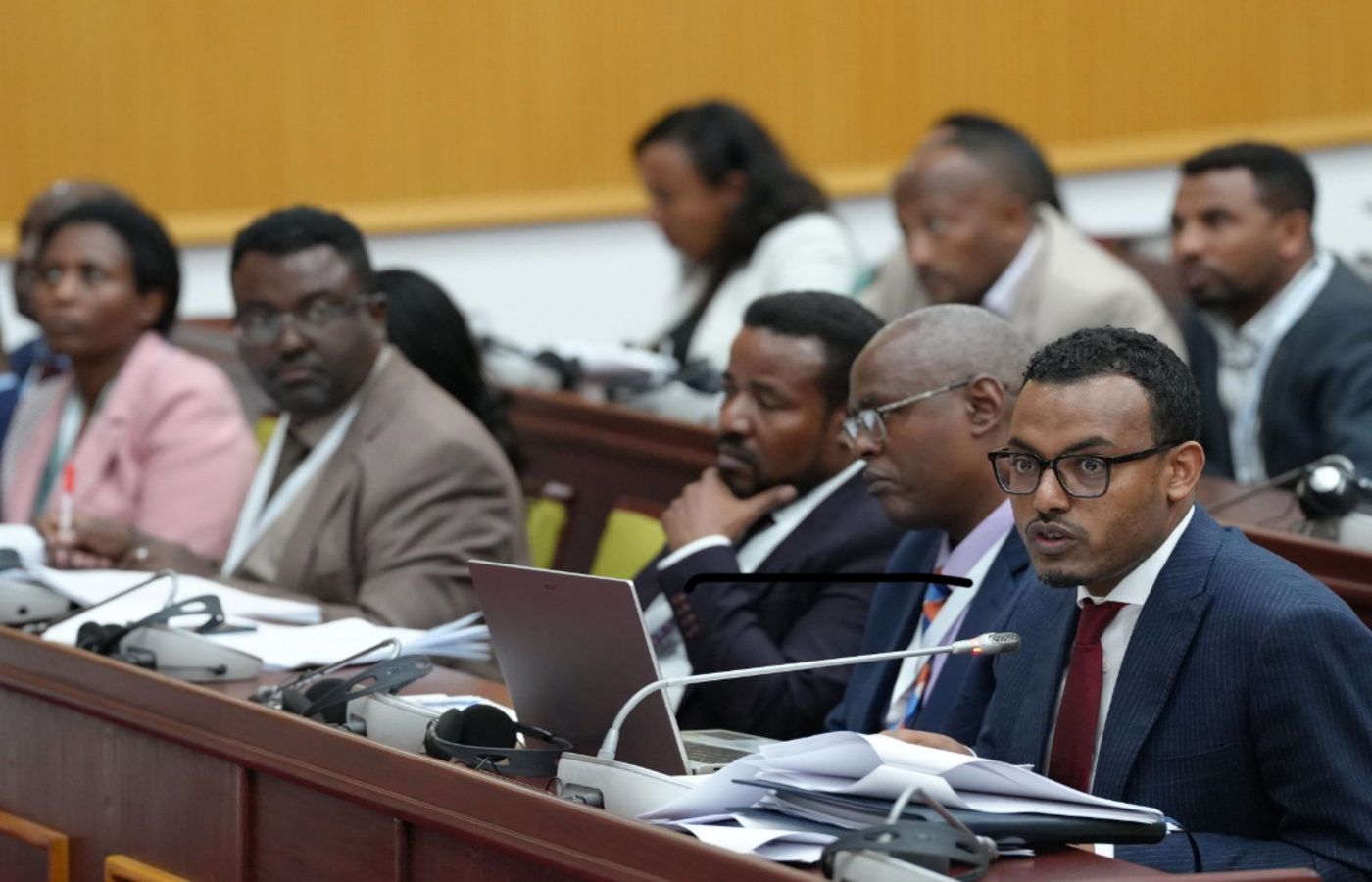By Yared Seyoum
The introduction of Islamic banking services in Ethiopia can be traced back over a decade, beginning as a solution to the financial needs of the country's sizable Muslim population. As early as 2007, community delegates raised the issue with government officials, requesting permission to establish interest-free options conforming to Shariah principles.
A pivotal proposal to the late Prime Minister Meles Zenawi in 2008 to establish what would become Zamzam Bank prompted directives from the National Bank of Ethiopia to explore regulatory changes. This led to Proclamation No. 592/2008 permitting the first window-based offerings through conventional institutions like Commercial Bank of Ethiopia from 2013.
However, further policy developments created barriers. A 2011 directive abruptly restricted full-fledged Islamic banks, killing Zamzam's ambitions until Ethiopia's reformist Prime Minister Abiy Ahmed reopened authorization in 2021. This stop-start pattern hindered the accumulation of local expertise and precedents essential for building sustainable infrastructure.
Ironically, while collective deposits now total billions of birr, this fragmented history of starts and stops ironically contributes to gaps persisting between funds collected and investments activated across the sector. Entities faced rushed implementation without comprehensive groundwork to smooth regulatory incongruences or build skills from theoretical concepts to practical application.
"Over 50 years of global Islamic finance industry experience was reduced to a mere 2.5 years in Ethiopia due to repeated policy U-turns," remarked Hijra Bank CEO Dawit Keno on the transitional challenges faced. "Rushing from theory to implementation without concrete groundwork created inevitable gaps."
Interest-free banking pioneer Zamzam weathered a near-shutdown before gaining the first full license to operate in 2021. While representing tangible progress, the sector's fragmented history contributed to capacity and knowledge deficits persisting today, according to experts.
Regulatory Limitations Inhibit Investment Potential
A key factor cited for the deposits-investment gap is constraints imposed by the prevailing regulatory framework not fully geared toward Islamic finance models. Currently Directive No. SBB/65/2017 restricts bank equity holdings and investments in non-banking ventures.
“Regulations appear tailored more for conventional interest-based systems, lacking comprehensive Shariah-compliant investment guidelines,” noted Abdullah Mohammed, CEO of Ramis Bank. “This presents significant challenges optimizing deposit usage according to risk-sharing principles.”
Stringent rules necessitate a cautious approach, curbing deployments into potentially lucrative yet riskier projects essential for positive returns aligned to depositors’ expectations over the long term, according to him. Banks cannot invest all funds immediately as regulations limit exposures across investee entities.
For Adnan Esmael, an expert in IFB, it is premature to conclude that full-fledged IF banks in Ethiopia are not investing their deposits effectively. He cited Zamzam Bank, which invested 75 percent of its deposits during the 2022/23 fiscal year. “In contrast, conventional banks offering IF banking services through a window approach may not be investing the IFB deposits they collect as efficiently,” he added.
Banks may find it difficult to operate within the constraints of both conventional and IFB banking services, causing operational challenges in balancing different requirements and risk profiles, according to him. Additionally, the reported 26-35 percent gap is highest among window providers subject to their parent conventional bank’s traditionally risk-averse norms rather than a dedicated Islamic framework.
“Given the relatively recent introduction of IFB in Ethiopia, banks might not have the necessary specialized knowledge to identify and manage Shariah-compliant investments effectively. This can lead to a conservative investment approach, where banks opt for low-risk, low-return options, potentially not maximizing the potential of the deposits,” Adnan added.
Lack of Specialized Expertise Poses Operational Hurdles
Widely considered a core impediment currently is Ethiopia’s paucity of human resources sufficiently trained in Islamic banking principles and Shariah-compliant investment analysis. “Building specialized skills from the ground up within a short time frame presented immense challenges,” acknowledged Dawit of Hijra Bank.
Early entrants struggled with identification and due diligence for viable investment prospects acceptable to religious overseers ensuring rulings' coherence. This conservative approach persisted due to a lack of local expertise for nuanced evaluation essential under profit-and-loss sharing models.
Abdullah elucidated, “We faced difficulties securing knowledgeable staff and even experienced international hires required lengthy onboarding periods to grasp the domestic context.” Resultantly, initial investment strategies erred toward safe lower-yield options over potentially higher-returning opportunities entailing complex structuring.
While ongoing training is gradually strengthening internal capabilities, targeted efforts accelerating expertise development still lag. “Specialized degrees or certification programs could help address shortages more rapidly,” suggested Abdullah. Quality internships pairing local talents with industry mentors emerged as another viable solution proposed.
However, mounting public distrust over improperly implemented Islamic products reinforced cautious deployment until confidence and understanding take deeper root within the community as emphasized across interviews. Adnadn advises, “leveraging market research and data analytics empowers data-driven decisions that align with the size and duration of their deposit base.”
Pervasive Double Taxation Dampens Commercial Viability
Weighing heavily on investment decisions particularly affecting murabaha contracts is Ethiopia’s double taxation imposed on both purchase and resale transactions. According to experts, this disproportionally burdens the risk-sharing business model intrinsic to Islamic finance. Offering perspective was Adnan, “the burden of double taxation can limit investment options for IFB banks, even for Shariah-compliant opportunities, thereby hindering portfolio diversification.”
Ramis CEO Abdullah concurred the practice “greatly hinders full fund allocation as post-tax margins get squeezed, negatively impacting capacity to distribute profits or replenish capital.” Even otherwise viable projects attracting financing face roadblocks due to compound levies, he added.
Adnan believes advocating for tax exemptions or rebates specifically on investment sales for IFBs would directly incentivize them to invest deposits more actively. He proposed exploring profit-sharing based tax structures aligning more inherently with underlying Islamic contracts. A review of Ethiopia's tax structure is necessary to minimize or eliminate double taxation for Shariah-compliant investments altogether would create a fairer playing field, according to him.
“Finally, exploring alternative investment structures, which are inherently different from conventional bonds and potentially less susceptible to double taxation, could offer additional avenues for IFBs,” he added.
Suggesting tailored reform, a banking expert recommended “Exemptions specifically for murabaha resales, or alternatives such as taxes on net profits rather than each transaction could level the playing field versus conventional interest.”
The Case for a Dedicated Regulatory Agency
There are differing views on the need to establish a separate regulatory body dedicated to overseeing Ethiopia's Islamic finance sector. Supporters say it could help address many current regulatory constraints and uncertainties they face by developing standards tailored to their business models. However, others caution that setting up an entirely new entity could introduce inefficiencies and costs, suggesting strengthening existing institutions through focused training and collaboration as a more effective interim approach.
Abdullah is strongly in favor of a specialized regulatory body. He believes this could provide much-needed clarity on issues like permissible investment options and streamlined approval processes. "A body with technical Islamic finance expertise would develop prudential standards distinguishing our contracts, addressing current regulatory uncertainties," he noted.
Hijra’s Dawit shared this view. He said dedicated oversight is necessary to "craft banking rules, standardized contracts and accounting practices optimized for our risk-sharing models." This could minimize excessive caution from inconsistencies in the existing general framework.
IFB expert Adnan acknowledged merits to the idea but suggested an alternative approach may be preferable currently. "Establishing an independent body does offer advantages like specialized oversight and tailored regulations," he said. However, Adnan highlighted potential drawbacks such as duplication of efforts, inefficiencies, and high costs associated with creating a new body from scratch.
Instead, he recommended strengthening existing institutions through targeted training and inter-agency collaboration. "Forming an inter-regulatory task force could provide focused oversight without needing to set up a wholly new entity," Adnan explained. In his view, this approach could facilitate efficient regulation without some of the challenges of a standalone body currently.





